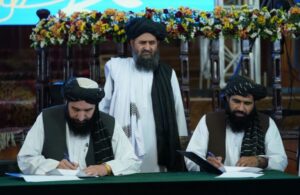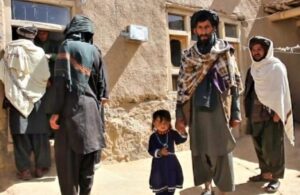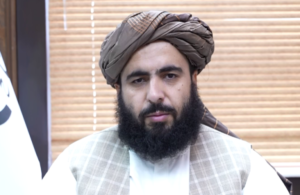KABUL (SW) – “It is very difficult to imagine a world without radio,” said Roza Otunbayeva, head of the United Nations Assistance Mission in Afghanistan (UNAMA) and special representative of the UN Secretary-General for Afghanistan.
Otunbayeva has praised radio in Afghanistan as a “vital source of news, educational and public debate for nearly a century.”
On World Radio Day on Tuesday, February 13, UNAMA Dari shared a video of Roza Otunbayeva’s visit to The Killid Group Radio and Radio Mursal.
The United Nations Educational, Scientific and Cultural Organization (UNESCO) has also written on X that radio is starting its second century as one of the most reliable and widely used media in the world.
UNESCO said that due to its accessibility, radio provides a key to promoting diversity, dialogue, solidarity and more.
February 13, was named as World Radio Day by UNESCO in 2011.
In 2024, World Radio Day is being celebrated in Afghanistan while this important and popular medium among citizens in Kabul city and other provinces is facing a decrease in the quantity and quality of broadcasts due to economic problems and restrictions.
Esmatullah Halim, director of “Radio Chenar” in Kabul and Rasul Sardash, director of Radio Armaghan in Jowzjan, say that due to the dire economic situation, they are not optimism for the effective operation of radios in the coming years.
“The employees cannot be supported. This situation brings changes to the quantity, and instead of three people, one person works; the number of programs decreases; technical equipment is weak because we cannot supply electricity for the big transmitter,” said Esmatullah Halim.
A number of radio employees say that the limitations of radio broadcasts and the bad economic situation have caused a decrease in the audience’s interest to follow radio programs.
Masoum, a radio host at one of the radio stations in Kabul city, says: “Imposing restrictions and sanctions makes the media unable to work in the way it should work. This situation has caused a decrease in financial support and radios cannot broadcast and cover widely. Their fans have decreased.”
According to the statistics of the Afghanistan Free Journalists’ Association (AFJU), there are currently 257 radio stations operating throughout Afghanistan.
Farhad Behroz, the deputy of AFJU, tells Salaam Watandar: “In more than two years, 19 new radios have been established and 24 other radios have resumed their activities. In the past year, 9 radios have stopped broadcasting and 7 radios have started to operate again.”
On World Radio Day, the Ministry of Information and Culture assures the continued support of radioactivities in Afghanistan. Currently, more than 2000 people, including 270 women, are working in radios all throughout Afghanistan.






